News
New article in One Ecosystem on the link between Ecosystem Condition and Ecosystem Services

Ecosystem services fundamentally depend on ecosystem condition, yet many assessments still rely primarily on land cover as a proxy for ecosystem functioning. In this recent systematic review, we analysed 128 scientific studies to examine how ecosystem condition indicators are currently linked to ecosystem service assessments.
Stress-testing conservation strategies under uncertain future socio-environmental changes reveals which approaches best protect future ecosystem service provision

Conservation planning is often grounded in static views of today’s landscapes. Our research shows how simulation modeling across future scenarios can guide adaptive strategies and reveal synergies among competing conservation objectives.
Disaggregated urban land use change modeling shows how settlements grow and transform

Local land use decisions can trigger far reaching regional effects, and high-resolution modeling makes these broader development patterns visible.
New article in the Journal of Insect Conservation: Passive acoustic monitoring of grasshoppers in agroforestry systems

Biodiversity is under strong pressure in many agricultural regions, and numerous Swiss species are threatened – including around 40% of grasshopper species.
Developing Shared and Desired Spatial Energy Visions

Our new article «Integrated participatory visioning for a shared and desired spatial energy future» in European Planning Studies examines how participatory visioning can support desirable spatial developments and societal transitions, such as the energy transition.
Building outside building zones has a significant effect on the visual quality of our landscapes

Our paper, “Visual exposure to buildings in Switzerland: spatial patterns and changes over six decades” published in Scientific Reports, examines exactly that question. Led by Andreas Moser, the paper combines historical and contemporary building footprint datasets with binary and cumulative viewshed analyses to quantify changes in building visibility from 1960 to 2024 in Switzerland.
Urban water project must consider landscape architects

Our new paper, published in Nature Water, argues from experience in Madagascar, that landscape architects can leverage precision modelling and vernacular intelligence to design resilient and culturally embedded solutions to floods.
Global expansion of the ecological impact of extra-urban road traffic

Our new study, published in Nature Sustainability, uncovers the growing global footprint of extra-urban road traffic and its ecological implications.
The pluralistic natural capital values of a tropical city

We finally made it! Our synthesis of the large NatCap project in Singapore «The pluralistic natural capital values of a tropical city» has been published in Ecosystem Services, presenting the most extensive Natural Capital Assessment carried out in a tropical urban setting.
Aligning spatiotemporal supply and demand of Nature's Contribution to People (NCPs) for sustainable resource management

Spatial and temporal mismatches between the supply of and demand for NCPs present significant challenges for municipalities. Analyzing their evolution over several decades reveals patterns, common pressures, and opportunities for coordinated management.
Four successful PhD defenses

In the past three months, four PLUS PhD students successfully defended their thesis work, investigating landscape changes from different angles and using different theoretical and methodological lenses.
PLUS returns to the sunny Saas Valley for their annual writing week

After two years in Austria, PLUS made a return to the lovely Saas Valley in Wallis for the 8th edition of the annual writing week.
New article in Ecological Indicators: Towards a standardised monitoring of ecosystem condition

Systematic monitoring of the health and quality of ecosystems is vital for effective conservation and restoration, yet the approaches used to assess ecosystem condition are diverse and often difficult to compare.
Venice Biennale: Designing resilient urban landscapes for Antananarivo
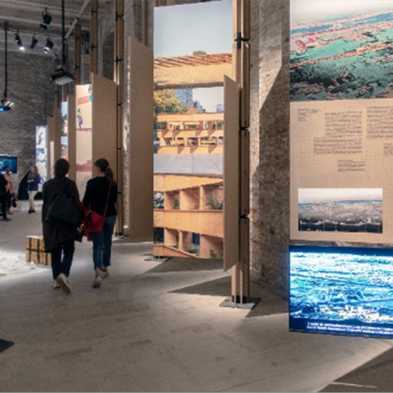
The final landscape designs, resulting from a five year long project of the Future Cities Lab Global, will be exhibited at Venice until Novembre 23rd this year.
New article in Agricultural and Food Economics journal: Do animals increase the productivity of Swiss farms?
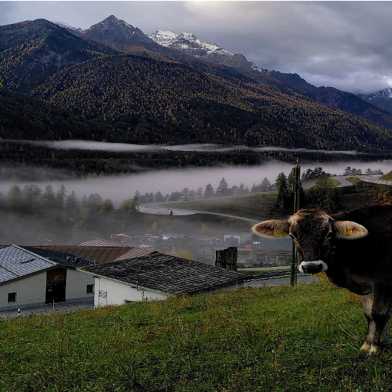
Research assessed a database of 2500 Swiss farms, comparing the productivity of farms with and without farmed animals, showing that…
In Memoriam Prof. Dr. Jakob Maurer
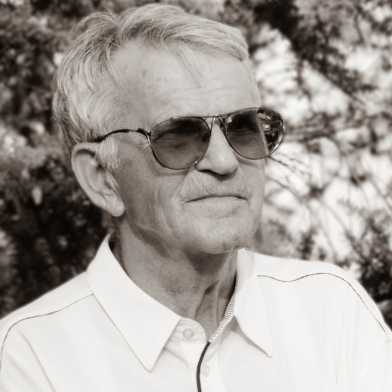
Jakob Maurer, emeritus professor of spatial planning at ETH Zurich, passed away on 30 May aged 96.
New Publication in Landscape Ecology – Rethinking Habitat Availability Across Time and Space
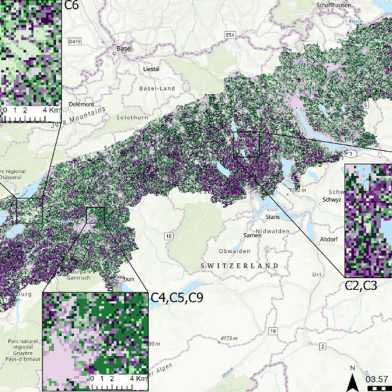
New article in Nature Cities – Emotions overrule cognitive evaluations in urban neighborhood preferences

Peri-urban growth is reshaping rural areas and creating challenges. Using immersive experiments, this study finds that emotional reactions dominate over cognitive judgments, with people favoring urban and rural settings over peri-urban ones in neighborhood preferences
New article in Renewable Energy: GIS-based analysis for identifying priority regions and developing renewable energy in post-war Ukraine
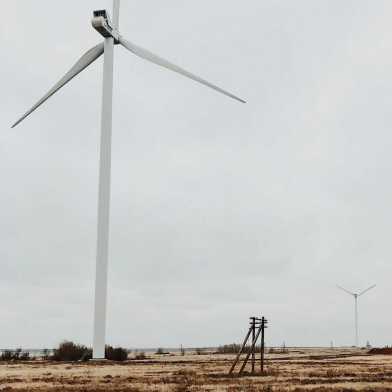
Research assess the technical potential of solar and wind energy combined with environmental, social, and technical factors for determines priority regions for the development of renewable energy. For the first time in Ukraine, the research defines a detailed renewable energy potential using spatial analysis, with 25 indicators to assess regions and pixel suitability and considered local features such as restrictions on the use of agricultural land.
Policy Brief: Where in the agricultural landscape is bird conservation worthwhile?

A publication in “Agrarforschung Schweiz” summarizes the results of a recently published research article in a practice-oriented manner. As part of the study, a focus map by Agroscope, ETH Zurich and the University of Lausanne shows where in the Swiss agricultural landscape biodiversity measures could have a positive effect on birds and where not. Based on these findings, land use can be better planned.